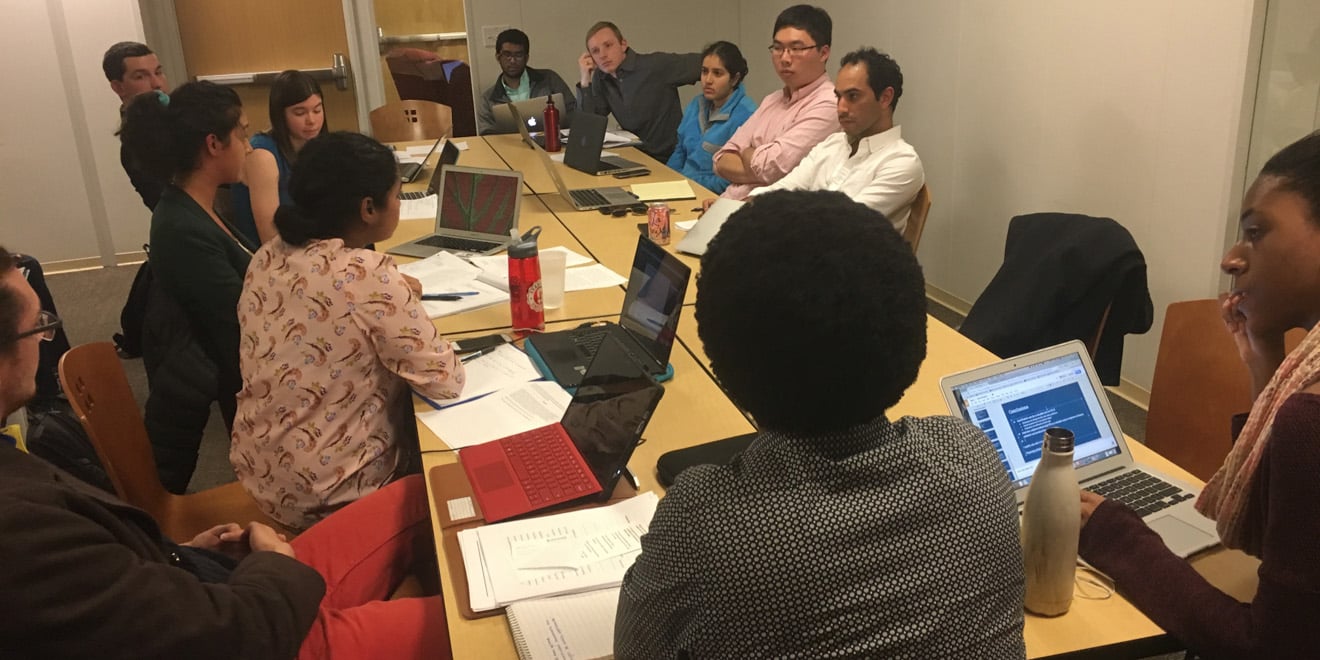On Wednesday night, the ASSU Constitutional Council heard arguments from Band, KZSU and ASSU on whether the Senate violated its constitution by denying voluntary student organizations (VSOs) the right to petition for Annual Grants that violate the Senate’s funding guidelines.
The Constitutional Council behaves as the Supreme Court of the Senate. The council is expected to reach a decision on the case — Leland Stanford Junior University Marching Band (LSJUMB) and KZSU Stanford (KZSU) v. the Undergraduate Senate — within seven days of Wednesday’s hearing.
The dispute arose after both LSJUMB and KZSU leadership were notified by the Senate Appropriations Committee on Feb. 15 of funding cuts because the groups’ request for funds to pay for certain expenses, such as officer salaries, was not covered by the Senate’s funding guidelines. The Senate also alerted both groups that they could not petition those specific cuts, leading to the Constitutional Council case.

Arguing for the petitioners, Katherine Hufker ’18 of LSJUMB and Caleb Smith ’17 of KZSU requested that the Constitutional Council prevent Senate actions that “directly or indirectly restrict a VSO’s right to request the funding of predictable expenditures via an Annual Grant.” The petitioners also sought to prevent the Senate from denying the right of a VSO to appeal the Senate’s Annual Grant funding decisions. Throughout the hearings, representatives for the petitioners expressed worry about the power of the Senate.
“The Senate’s representatives tonight expressed the view that they have unlimited power over the funding process in a way that could potentially cripple the entire petitioning process and grant the Senate unlimited authority over all funding questions,” Smith said. “Our position was that this is not the case — that the petitioning serves as a valuable, final bulwark against abuses by the Senate.”
The ASSU defended the constitutionality of its actions and warned that a ruling in favor of the petitioners could lead to serious issues in the future, including by jeopardizing ASSU finances.
“Ultimately, this is less about the Senate’s need to exercise its own power and [more about] the need for a system that can continue to sustain student programming,” said Stanford Student Enterprises (SSE) CEO Jelani Munroe ’16 following the proceedings.
Much of the debate centered on the Senate’s perceived lack of power over funding. However, Luka Fatuesi ’17, Assistant Financial Manager of the ASSU, pointed out that the Senate ought to act as a check on student groups when their requests are outlandish.
“A lot of the conversation in the council turned on limits on Senate power, which I think the respondents answered quite adequately within the proceedings, but I don’t think that there was a lot of consideration to the limits on what VSOs can do and how we prevent abuse of the student fee from VSOs,” Fatuesi said.
The Senate defended the constitutionality of its action, claiming that the Senate “has ultimate authority to determine ASSU financial policies” and that its ability to regulate the Annual Grants process is part of its duties. In addition, the Senate held that ruling its actions unconstitutional could threaten the ASSU’s finances and that the Constitution does not allow VSOs to “petition for unregulated Annual Grants.”
The GSC and ASSU Presidents also submitted amicus briefs in defense of the Senate. The GSC’s brief argued that ruling in favor of LSJUMB and KZSU would potentially call into question the legality of the Senate as well as cause long-term financial problems.
ASSU President Jackson Beard ’17, a former Undergraduate Senate appropriations chair, echoed the GSC’s worry about the financial viability of the Senate if the Constitutional Council were to rule in favor of the petitioners.
Contact Jordan Payne at jpayne1 ‘at’ stanford.edu.
